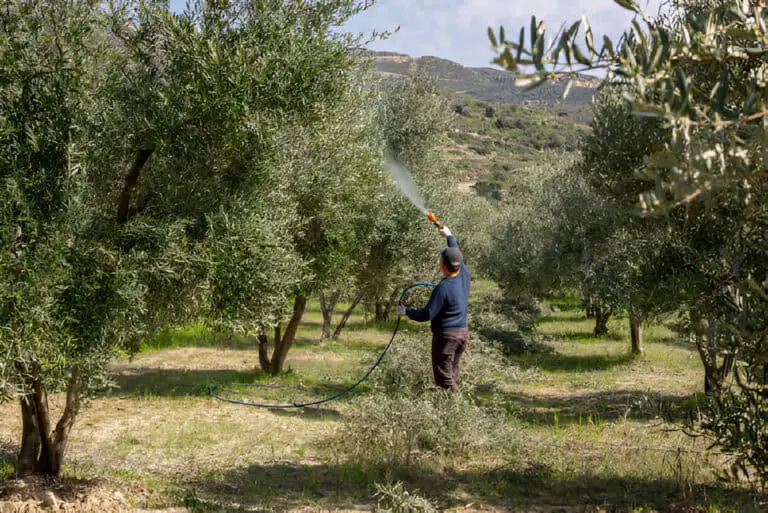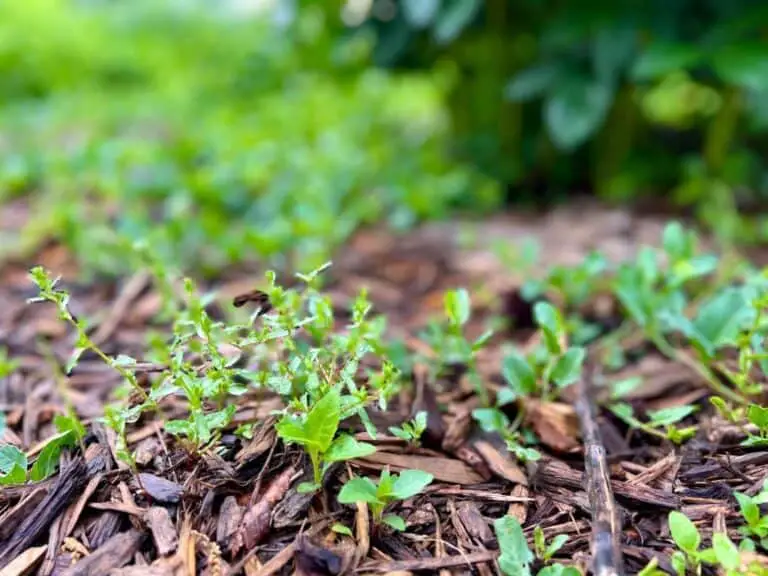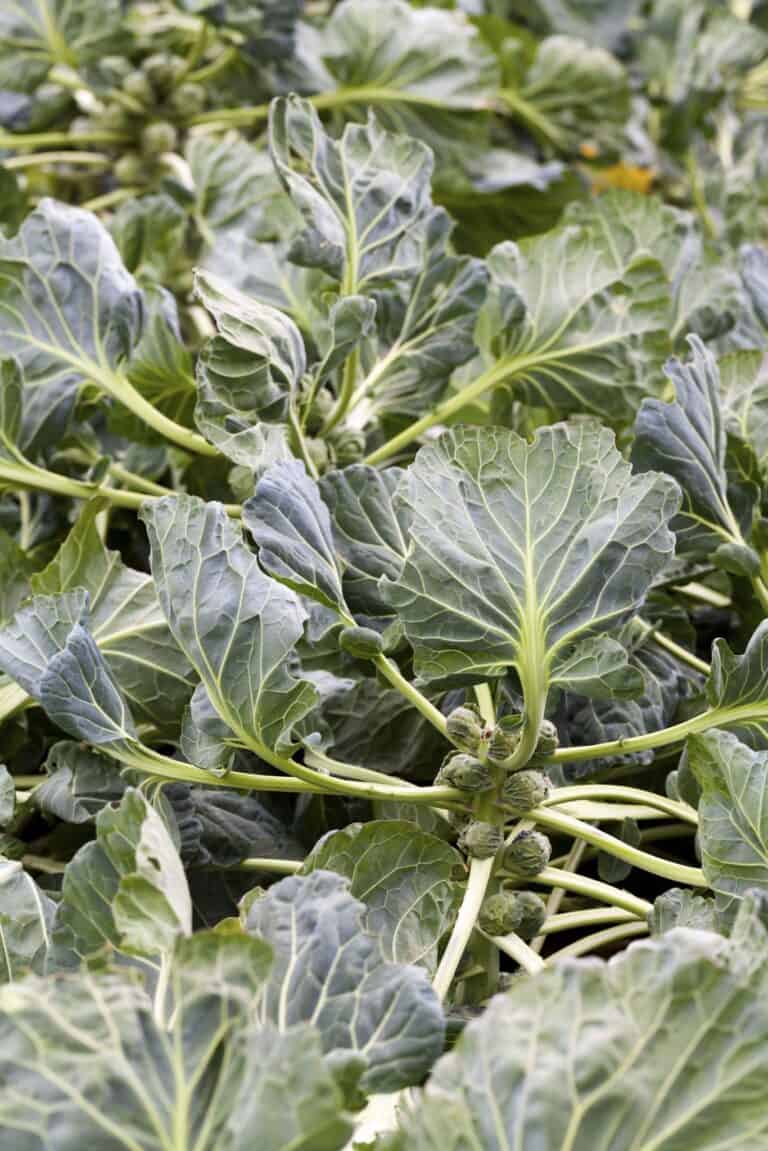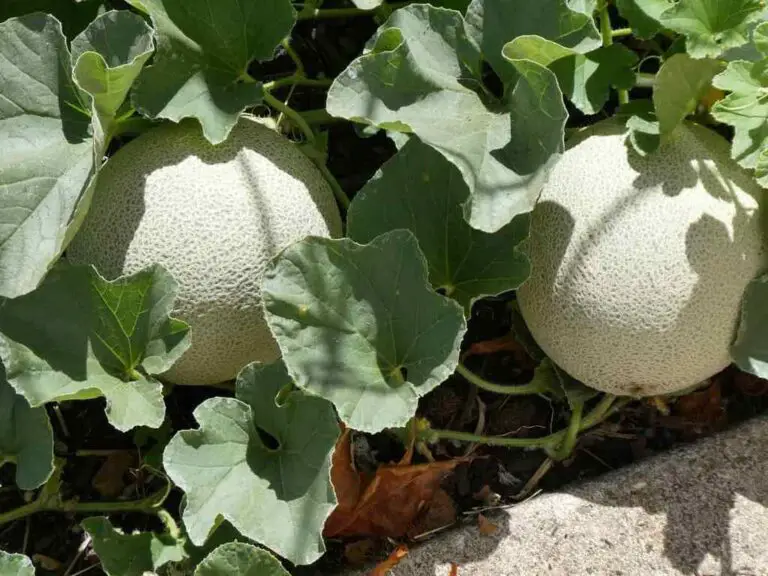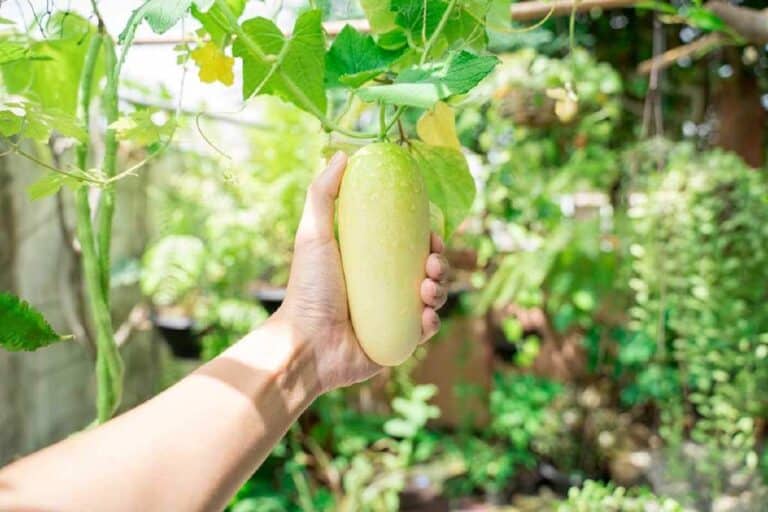Does Vinegar Kill Powdery Mildew? (Does Apple Cider Vinegar Treatment Works?)
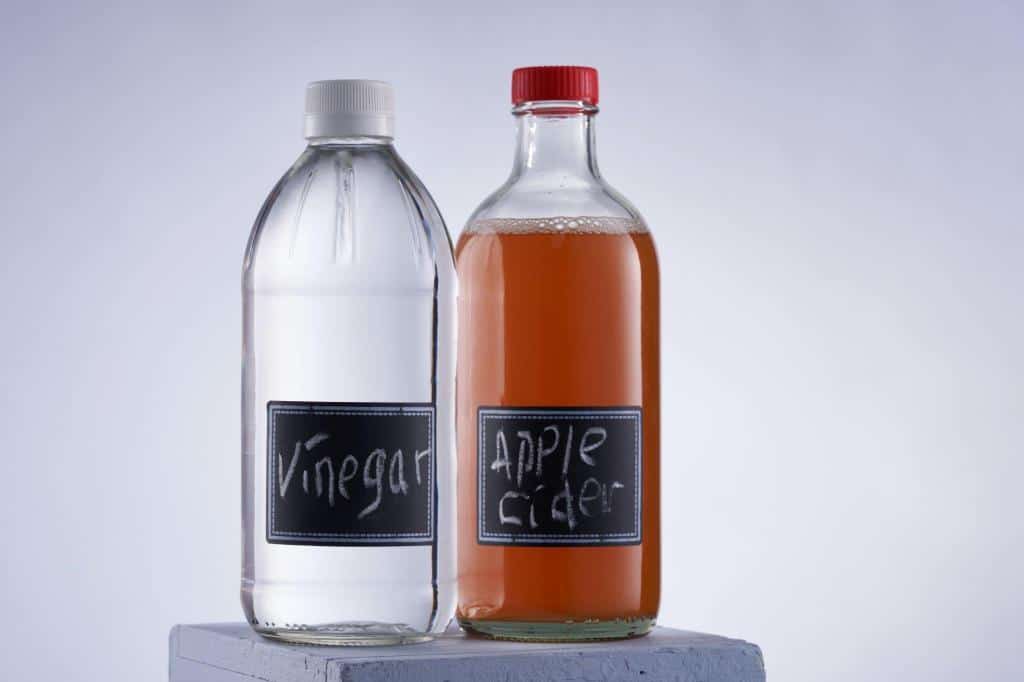
Do you have powdery mildew in your garden or on your plants? Want a natural and affordable solution?
If so, you may have come across people recommending an apple cider vinegar treatment. But does it actually work?
Apple cider vinegar, in particular, has been known to be a good way to get rid of powdery mildew.
In this blog post, we’ll talk about the science behind this home remedy and show you how to use apple cider vinegar to get rid of powdery mildew on your plants, step by step.
So, if you want to find out if the solution works, read on and find out if vinegar is the answer!
Powdery Mildew Impact on Plants
Powdery mildew is a common plant disease that can make plants sick and make them unappealing. It happens when fungal spores get into the air and land on plants that can get sick. If the conditions are right, the spores will grow into new fungi.
Infected plants appear to have a white or gray powder-like coating on their leaves, stems, flowers, and fruit. The fungus spreads quickly, causing leaves to turn yellow and plants to die if nothing is done to stop it.
Powdery mildew can also lower crop yields by stopping photosynthesis or hurting the fruit or other parts of the plant that can be eaten. Even small amounts of infection can cause both commercial farmers and home gardeners who grow vegetables for their own use to lose a lot of crops.
Also, areas that are already infected may be more likely to get a second infection from bacteria or viruses.
Does Vinegar Kill Powdery Mildew?
Vinegar is a natural fungicide that can kill powdery mildew on plants. It is rich in acid content, which makes it an effective weapon against the fungus. So, yes, vinegar will kill powdery mildew.
Before you use the vinegar solution on your plants, you should test it on a small piece of the plant to make sure it is safe for the plant.
Both common white vinegar and apple cider vinegar are used and advised for the control of fungi, and both work about as well. The choice of which vinegar to use is a matter of personal preference.
While apple cider vinegar has a distinct smell, white vinegar has a more neutral odor. Both types of vinegar are effective in killing powdery mildew, so you can use whichever one you prefer.
How to Use Vinegar to Treat Powdery Mildew
- Fill a clean spray bottle with 32 oz. of warm water. Use warm water as it will help the vinegar to mix more easily and evenly with the water.
- Add 1 tablespoon of vinegar. You can use either organic apple cider vinegar with the “mother” or white distilled vinegar. Both types of vinegar contain acetic acid, which is the active ingredient that fights powdery mildew. However, organic apple cider vinegar also contains beneficial enzymes and bacteria that can help to improve the overall health of the plant.
- Close the bottle and shake it well to ensure that the vinegar is evenly distributed in the water. This will ensure that the solution is consistent throughout and all areas of the plant are covered.
- Spray directly on plant leaves, making sure to cover the entire leaf surface, including the undersides of the leaves. Focus on the areas where powdery mildew is present, but also spray the surrounding leaves to prevent the spread of the fungus.
- Repeat the process every 7-10 days, or as needed, until the powdery mildew is no longer visible. It’s important to be consistent and persistent with the treatment, as powdery mildew can be difficult to eliminate completely.
- It’s also recommended to monitor the plants for any signs of phytotoxicity, which is damage to the plant caused by the use of the vinegar spray. If you notice any signs of leaf burn or wilting, discontinue the use of the vinegar solution and consider using a weaker solution or switching to another method of treatment.
Is It Safe to Spray Vinegar on Plants?
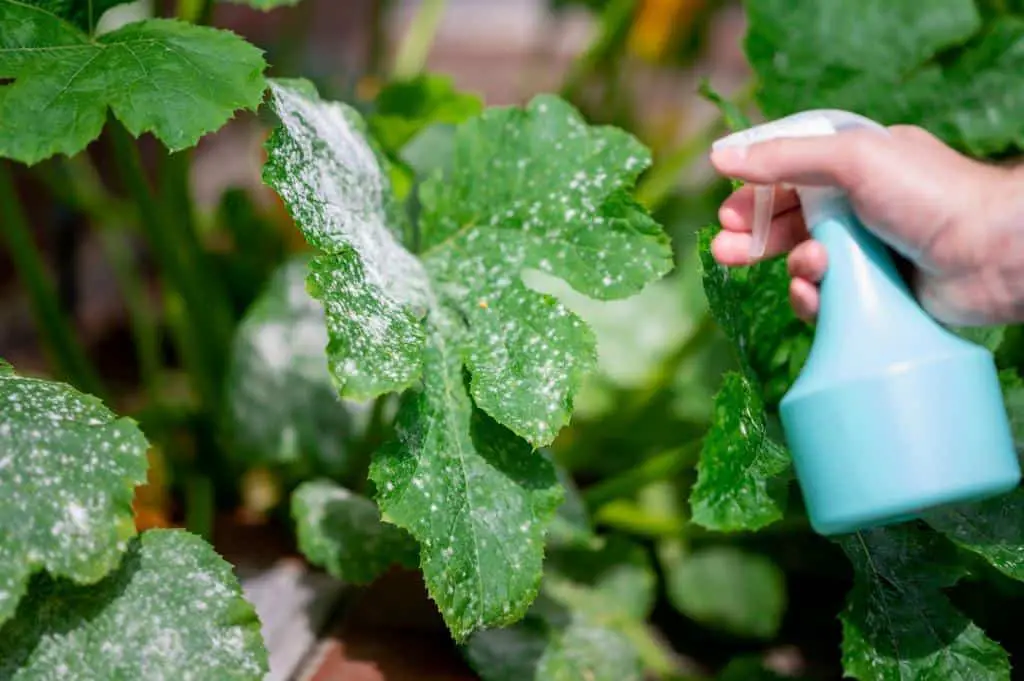
Vinegar is a popular household item that has many uses, including as a natural fungicide for plants. Many gardeners use vinegar to control powdery mildew and other fungal diseases on their plants. But is it safe to spray plants with vinegar? The short answer is yes, but with some precautions.
Acetic acid kills fungi, and vinegar, especially apple cider vinegar, has a lot of it. When mixed with water and sprayed on plants, it can effectively kill powdery mildew and other fungal diseases.
Vinegar is an acidic liquid, and when sprayed in high concentrations, it can burn the foliage of plants. Before putting the vinegar on the plants, it is best to mix it with water in a ratio of 1:3 or 1:4. This will make the solution less acidic and keep the plants from getting hurt.
Vinegar should not be used on plants that are sensitive to acidity, such as those in the succulent family and those with delicate leaves. Before using vinegar on any plant, it’s a good idea to test a small portion of the plant first to ensure that it is suitable for the plant.
| Vinegar can also hurt good bugs like bees, butterflies, and ladybugs, which is another important thing to think about. It’s best to apply the vinegar solution in the evening or early morning, when the pollinators are less active. |
Pro and Cons Using Vinegar to Kill Powdery Mildew
Pros
Cons
- Natural and effective fungicide
- Inexpensive and readily available
- Can be used on a variety of plants
- Easy to mix and apply
- Can burn foliage if used in high concentrations
- Not suitable for plants sensitive to acidity
- Harmful to beneficial insects such as bees, butterflies, and ladybugs
- May have a strong smell
In summary, using vinegar to kill powdery mildew has its advantages and disadvantages. On the one hand, it is a cheap and easy-to-find natural fungicide that works well. It can be used on a variety of plants and is easy to mix and apply.
But if it is used in high concentrations, it can burn the leaves of plants. It is also not good for plants that are sensitive to acidity, hurts beneficial insects, and may have a strong smell. It’s important to consider these factors when deciding whether to use vinegar to control powdery mildew on your plants.
What Other Natural Treatment for Powdery Mildew?
Powdery mildew is often treated naturally with vinegar, but there are other ways to do it as well.
1. Baking Soda
One of the most effective natural treatments for powdery mildew is baking soda. Baking soda is a natural fungicide that can help to control powdery mildew.
To use baking soda to control powdery mildew, mix one tablespoon of baking soda with one gallon of water, and add a few drops of dish soap. Spray the solution on the affected plants, making sure to cover all the leaves and stems. Baking soda works by creating an alkaline environment that the fungus cannot survive in.
2. Neem Oil
Neem oil is a natural fungicide and insecticide that can be used to control powdery mildew and other fungal diseases. To use neem oil, mix 1-2 tablespoons of neem oil with 1 gallon of water and add a few drops of dish soap.
Spray the solution on the affected plants, making sure to cover all the leaves and stems. Neem oil works by suffocating the fungus and preventing it from reproducing.
3. Horticultural Oil
Horticultural oil is a different all-natural treatment option. It is a kind of oil that kills powdery mildew spores by concealing them and making it difficult for them to grow.
Use this method by combining the oil and water as directed and spraying it on the affected plants. You can use horticultural oil to get rid of powdery mildew, but you should use it carefully because it can harm beneficial insects for plants.
4. Garlic
Garlic is also an effective natural treatment for powdery mildew. Garlic contains compounds that are toxic to the fungus that causes powdery mildew. To use garlic to control powdery mildew, make a garlic spray by blending 2-3 cloves of garlic with 1 quart of water. Let the mixture sit overnight, then strain the liquid and spray it on the affected plants.
Conclusion
In short, vinegar is a natural way to get rid of powdery mildew on plants that can work well. It is rich in acid content, which makes it an effective fungicide.
It’s important to mix the vinegar with water in a ratio of 1:3 or 1:4. Test a small portion of the plant first to ensure that it is suitable for the plant. People use and recommend both white vinegar and apple cider vinegar to get rid of fungus, and they work about the same.
It is safe to spray plants with vinegar as a natural fungicide, but it should be used with caution. Also, it shouldn’t be used on plants that are sensitive to acidity, and it should only be used at night or early in the morning so that it doesn’t hurt good bugs.

